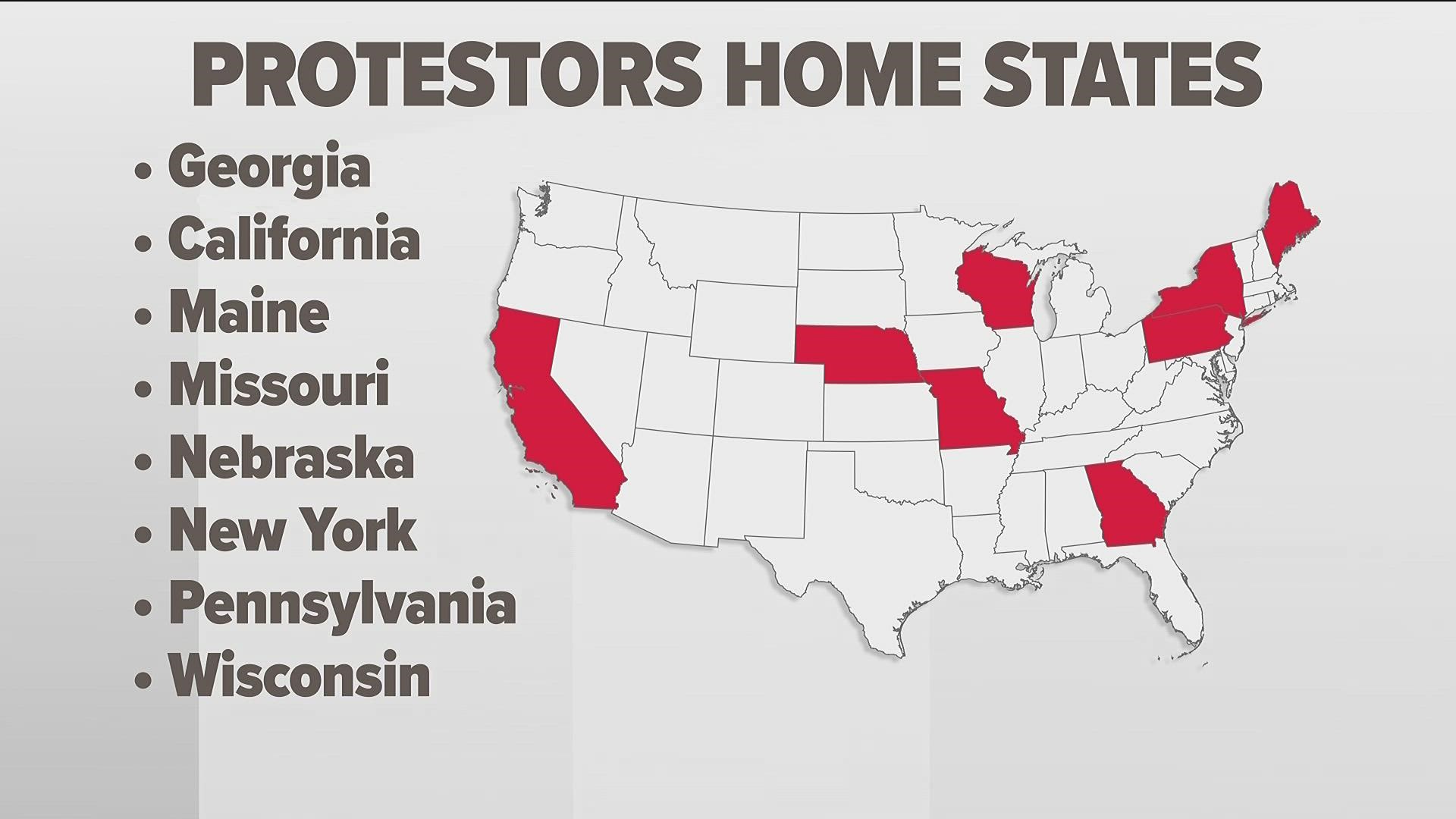ATLANTA — During a planned law enforcement operation at the future Atlanta Public Safety Training Center site, seven people were arrested by the Georgia Bureau of Investigation Wednesday. All of them face domestic terrorism and criminal trespass charges.
Authorities arrested another seven people last month, meaning 14 people are now facing charges for occupying the area known as "Cop City." Jail records show 14 protesters who are residents from a total of eight different states, from California to New York -- and four are from Georgia. All are accused of domestic terrorism.
Attorney Darryl Cohen explains domestic terrorism encompasses various types of charges. It's considered a felony and establishes that a person had the intent to intimidate the public or coerce the government while causing significant harm.
"It's a very general charge to prevent people from again, putting those that are supposed to be on the property legally – prevent them from being harassed, prevent them from being in fear of safety of their own lives," Cohen said. "It's all-encompassing."
The attorney clarified that the charge also separates them as peaceful protesters.
"It's OK to be a protester and stand in front -- not on the grounds. It's OK to have a sign, it's OK to say 'this is wrong, we don't like it," he explained. "They put obstructive things in the property or on the property, trying to prevent the construction company from actually constructing what again is called 'Cop City.'"
He furthered that construction crews were scared for their own safety and were legally allowed to be there, as were law enforcement. By compromising safety and access, the protesters could be accused of domestic terrorism.
"They did all sorts of things that they should not have done as a peaceful protester," Cohen said, ultimately elevating misdemeanor trespassing charges to felony accusations.
The harsher charge could bring more drastic consequences. Anytime anyone is charged with a felony, they are liable for incarceration. In the case of domestic terrorism, this could mean a year of prison time or longer, according to the attorney.
"It doesn't mean they have to be in prison -- but they can be," Cohen said.
He said they will likely qualify for a bond.
Cohen added that just because authorities filed those charges does not mean they will necessarily be prosecuted under that crime -- it will be up to the district attorney.
"It's just a beginning of a long road," Cohen said.

